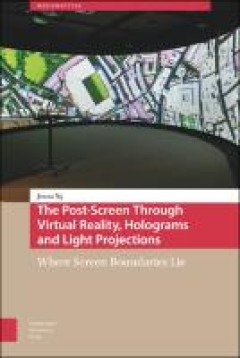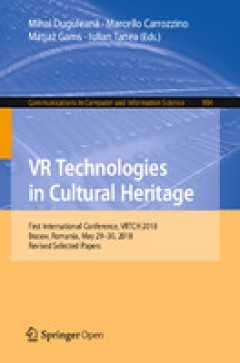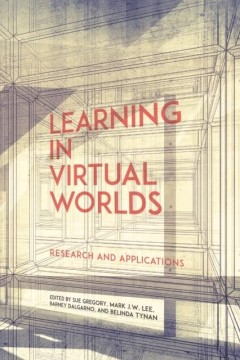Filter by

Virtual reality methods: a guide for researchers in the social sciences and h…
Since the mid-2010s, virtual reality (VR) technology has advanced rapidly. This book explores the many opportunities that VR can offer for humanities and social sciences researchers. The book provides a user-friendly, non-technical methods guide to using ready-made VR content and 360° video as well as creating custom materials. It examines the advantages and disadvantages of different approach…
- Edition
- -
- ISBN/ISSN
- 9781447360773
- Collation
- vii, 159p : ill.
- Series Title
- -
- Call Number
- 001.30721 PHI v

The post-screen through virtual reality, holograms and light projections
Screens are ubiquitous today. They display information; present image worlds; are portable; connect to mobile networks; mesmerize. However, contemporary screen media also seek to eliminate the presence of the screen and the visibilities of its boundaries. As what is image becomes increasingly indistinguishable against the viewer’s actual surroundings, this unsettling prompts re-examination ab…
- Edition
- -
- ISBN/ISSN
- 9789048552566
- Collation
- -
- Series Title
- -
- Call Number
- 302.2 JEN

VR Technologies in Cultural Heritage : First International Conference, VRTCH …
This open access book constitutes the refereed proceedings of the First International Conference on VR Technologies in Cultural Heritage, VRTCH 2018, held in Brasov, Romania in May 2018. The 13 revised full papers along with the 5 short papers presented were carefully reviewed and selected from 21 submissions. The papers of this volume are organized in topical sections on data acquisition and m…
- Edition
- -
- ISBN/ISSN
- 9783030058197
- Collation
- X, 244 p.
- Series Title
- -
- Call Number
- 006.8 VRT v

Learning in virtual worlds : research and applications
Three-dimensional (3D) immersive virtual worlds have been touted as being capable of facilitating highly interactive, engaging, multimodal learning experiences. Much of the evidence gathered to support these claims has been anecdotal but the potential that these environments hold to solve traditional problems in online and technology-mediated education—primarily learner isolation and student …
- Edition
- -
- ISBN/ISSN
- 9781771991360
- Collation
- xxvii, 329p. : ill.
- Series Title
- -
- Call Number
- 371.33468 LEA l
 Computer Science, Information & General Works
Computer Science, Information & General Works  Philosophy & Psychology
Philosophy & Psychology  Religion
Religion  Social Sciences
Social Sciences  Language
Language  Pure Science
Pure Science  Applied Sciences
Applied Sciences  Art & Recreation
Art & Recreation  Literature
Literature  History & Geography
History & Geography